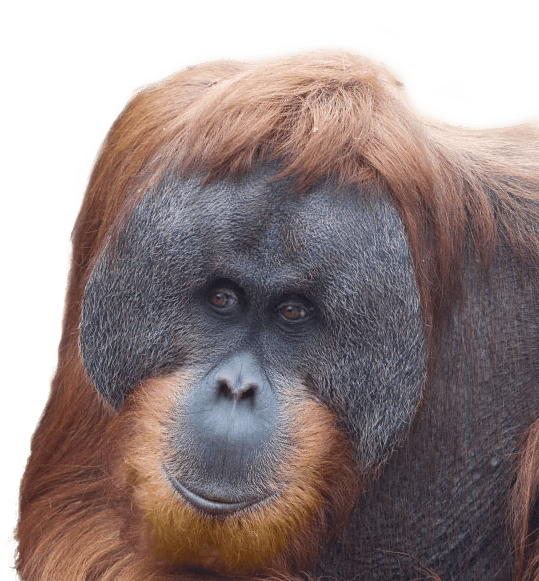Sumatran Orang-utans inhabit the tropical rainforests on the island of Sumatra, Indonesia. The species is now restricted to north Sumatra and Aceh Provinces.
Also known as the red ape or the ‘old man of the forest’, orang-utans are the largest tree-dwelling mammal on earth. Humans share 97% of our DNA with orang-utans and the species is considered by many scientists to be the smartest of all the great apes.
It’s estimated that are only around 7,000 wild orang-utans. These figures suggest that they could become extinct within the next ten years as the population continues to decline by as many as 1,000 a year.
The greatest threat to the Sumatran Orang-utan is habitat loss caused primarily by logging, forest conversion for agriculture and the clearing of land for unsustainable palm oil plantations. Legislation in Sumatra prohibits the owning, killing or capture of orang-utans, but poachers still hunt them, primarily for the illegal wildlife trade.










